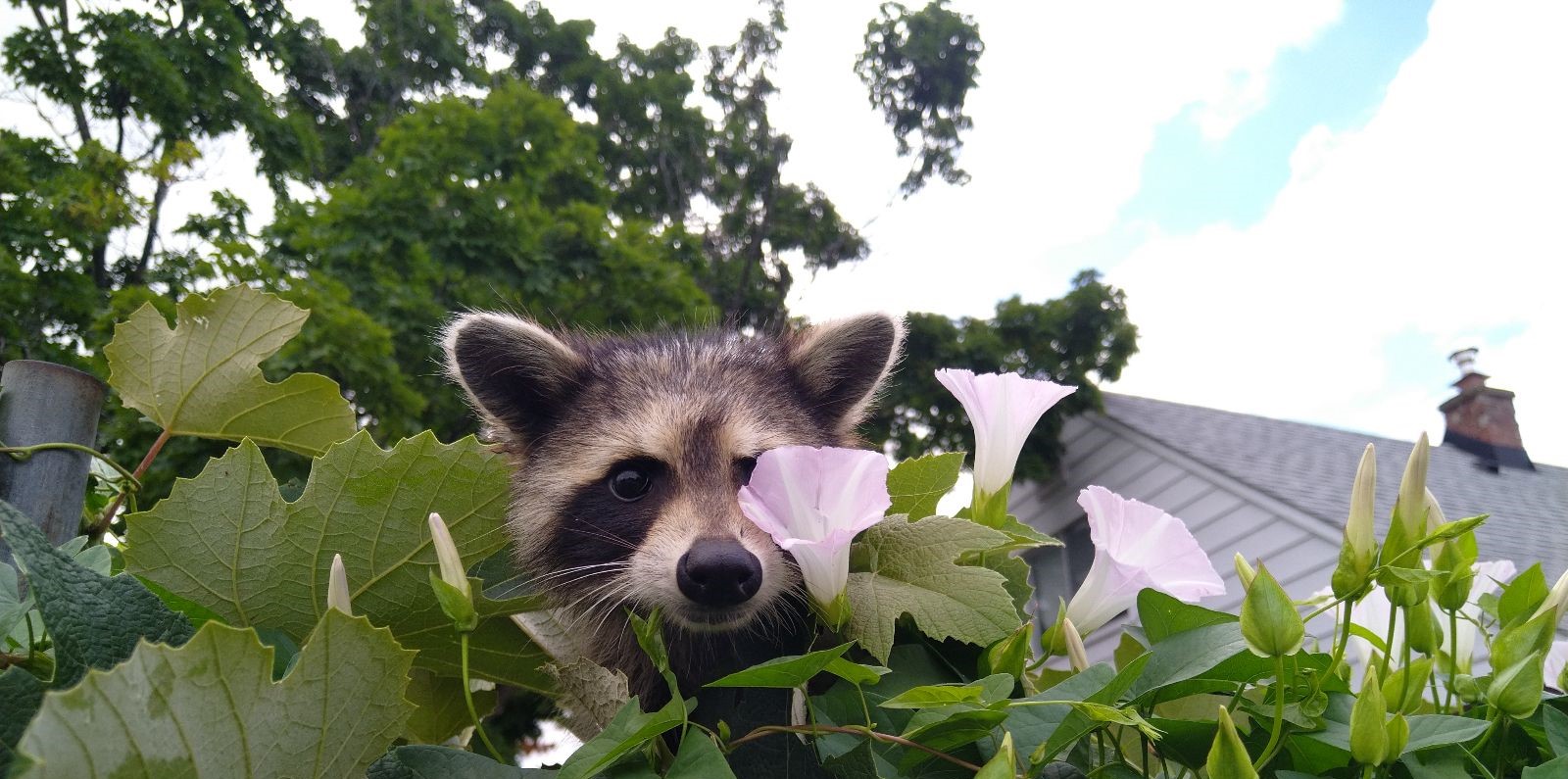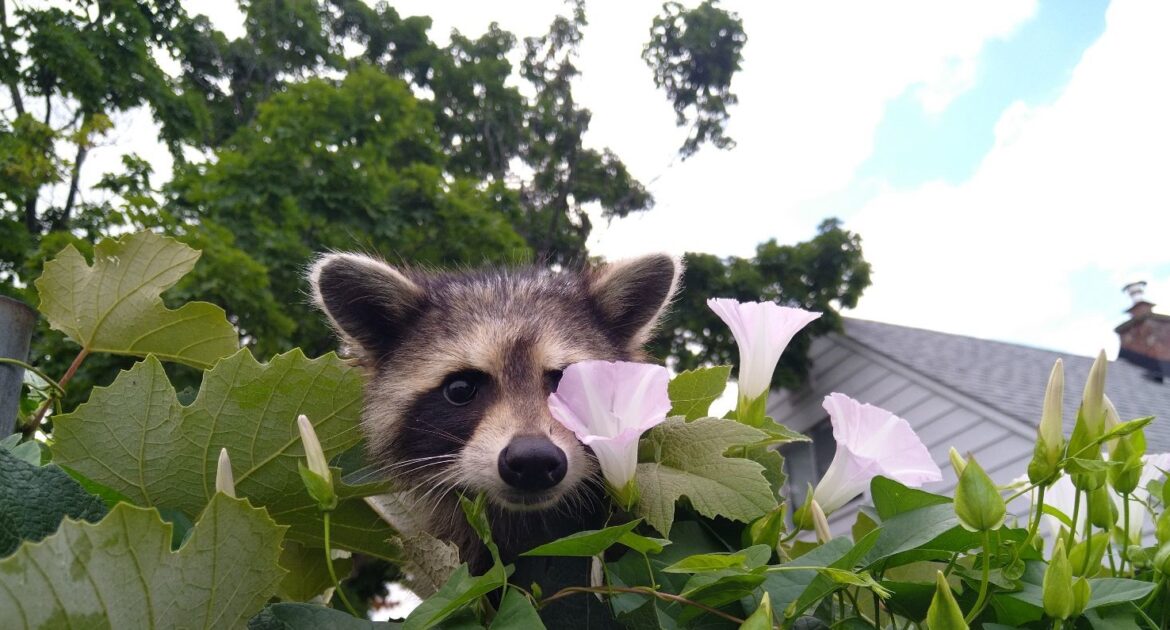Raccoons have become a common sight in urban and suburban landscapes, turning our backyards into their playgrounds. Their clever, adaptable nature allows them to thrive in human environments, often leading to encounters that can be more nuisance than novelty. One of the most unpleasant habits these masked bandits have is using our yards as their personal latrines, leaving behind unsightly messes that can pose health risks and foul odours.
But why do raccoons choose our yards for this unsavoury activity? These nocturnal creatures are drawn to the scent of food, and even the remnants of meal scraps can tempt them to linger. When they find a suitable spot, they mark their territory by establishing a latrine, which often becomes a habit.
At Skedaddle Humane Wildlife Control in Montreal, we understand the dynamics of raccoon behaviour and the best ways to deter them from taking over your yard. Throughout this article, we will explore practical solutions and humane strategies to reclaim your outdoor space and keep these unwelcome guests at bay.
Territorial Marking
When it comes to establishing their presence, these clever animals utilize feces as a method of territorial marking. By leaving behind their waste, they send a signal to others that this area is occupied.
The scent contained in the feces carries chemical signals that convey important information, such as the individual’s identity and reproductive status. This act not only serves to claim a space but can also deter rivals from encroaching too closely, as the smell indicates that they are in a well-established territory.
If our outdoor spaces become marked, we might notice an increase in unwanted visitors, as the scent can attract new intruders. The implications extend beyond mere inconvenience; the waste left behind can pose health risks due to parasites and can create an unpleasant environment for families and pets alike. By understanding how these animals communicate through their markings, we can better address their presence in our gardens.
Food Sources
The presence of nearby food sources significantly increases the likelihood of frequent visits from these nocturnal animals. Understanding how food attracts them can help us develop effective strategies to keep our outdoor spaces clean and free from mess. Here are some key factors to consider:
- Pet Food Left Outdoors: If we feed our pets outside, it can provide a tempting meal for wildlife. Even leftover morsels can entice them to linger in our yards. It’s best to bring pet dishes inside after feeding to eliminate this potential draw.
- Compost Bins: While composting is a great way to recycle organic waste, the strong scents of decomposing food can attract curious creatures. Using sealed compost bins and ensuring they are scent-proof can help mitigate this issue.
- Bird Feeders: Although feeding birds can provide enjoyment, spilled seeds and leftover food can attract wildlife. We should consider using squirrel-proof feeders and regularly cleaning up any fallen seeds to reduce unwanted visitors.
- Garden Vegetables and Fruits: Ripe fruits and veggies are a buffet of easy food, often leading to increased activity in our gardens. Harvesting produce promptly and placing netting over plants can help deter these visitors.
To discourage these frequent visits, managing our waste and securely storing trash is crucial. We should use raccoon-proof garbage bins with tight-fitting lids, and dispose of waste regularly. Keeping our outdoor areas clean and free from food remnants will help maintain our serene environment.
By recognizing the role that food sources play in attracting wildlife, we can take proactive measures to prevent our yards from becoming dining spots, ensuring peaceful coexistence.
Safe Havens
When it comes to choosing a spot to relieve themselves, these clever animals have a keen instinct for finding safe, secluded areas close to their nesting sites. They typically seek out environments that provide shelter and cover, allowing them to feel secure while they go about their business. Spaces like dense shrubs, overgrown gardens, or even hidden corners of our sheds offer the perfect combination of privacy and proximity to food sources.
In our outdoor spaces, we might often overlook features that attract these furry visitors. Areas with tall grasses, dense foliage, or cluttered corners can provide a sense of safety that encourages them to frequent those spots. Additionally, raised surfaces like decks or patios can be appealing because they offer an elevated vantage point while remaining relatively concealed. Recognizing and altering these inviting attributes in our yards can help diminish these unwanted visits.
Ultimately, by understanding their behaviour and the environments they prefer, we can make informed adjustments to our own outdoor areas, creating less hospitable conditions and encouraging wildlife to choose other locations. This not only protects our spaces but also aids in maintaining a more peaceful coexistence with nature.
Lack Of Predators
In urban environments, the absence of natural predators contributes significantly to the brazen behaviours of these adaptable creatures. Without the fear of being hunted, they feel at ease while foraging through our trash or exploring our gardens. This lack of threat encourages them to frequent our properties, undermining our efforts to maintain a clean and inviting outdoor space. When we consider how wildlife interacts with their surroundings, it’s clear that the safety provided by our urban settings fosters a sense of confidence in these animals.
Essentially, by having fewer reasons to conceal themselves, they can be more visible in our yards, leading to increased encounters that we may find undesirable. If we wish to regain control over our spaces, we must take proactive steps not just in cleaning up but also in understanding the dynamics of the wildlife around us. Acknowledging the role of natural predators can shift our approach to managing our outdoor areas.
While many factors influence their presence, the absence of threats in urban settings can lead to unwelcome visits. By being aware of these influences, we can better strategize our efforts to create environments that discourage them from taking over our outdoor spaces.
Health Risks
The presence of animal waste in our outdoor spaces can pose significant health risks that shouldn’t be overlooked. One of the most pressing concerns is the potential for disease transmission, which can occur if proper hygiene measures are not taken. Here are some health risks associated with the feces of these common visitors:
- Leptospirosis: This bacterial infection can be contracted through contact with contaminated soil or water. Symptoms can range from mild flu-like signs to severe illness, including liver damage or kidney failure. Properly cleaning up waste is crucial to preventing this disease.
- Baylisascaris: The larvae of this roundworm can be found in feces and may cause severe neurological damage if ingested. Young children are particularly at risk, making effective cleanup vital to ensure everyone’s safety.
- Histoplasmosis: This fungal infection can arise from inhaling spores from decomposing waste. It can lead to respiratory issues, especially in those with weakened immune systems. Keeping our environments clean helps limit exposure to potential allergens and pathogens.
- Salmonella: This bacteria can be present in contaminated fecal matter and cause gastrointestinal distress in humans. Maintaining sanitation in our yards is essential to reducing the risk of infection.
Given these health risks, it is essential to promptly clean any signs of waste in our outdoor areas. By ensuring that we maintain a clean environment, we not only protect our health but also contribute to a more pleasant outdoor space. Regular maintenance allows us to enjoy our gardens without the lingering threat of disease, enabling peaceful coexistence with nature while prioritizing our well-being.
Understanding The Reasons
Your yard should be a source of relaxation and enjoyment, not a frequent stop for nocturnal visitors. By understanding the reasons behind their presence—from territorial marking to easily accessible food sources—you can take proactive steps to deter them.
While these animals are simply following their instincts, there are effective strategies to make your property less appealing. At Skedaddle Humane Wildlife Control, we offer humane solutions tailored to your needs. Our approach focuses on creating environments that are less inviting, allowing you to reclaim your outdoor space.
Whether you’re dealing with unwanted deposits or seeking advice on making your yard less attractive to these creatures, contact us. Our team in Montreal is ready to provide the expertise and support you need. Request a quote today to learn more about our humane wildlife control services and take the first step towards a clean and peaceful yard.




